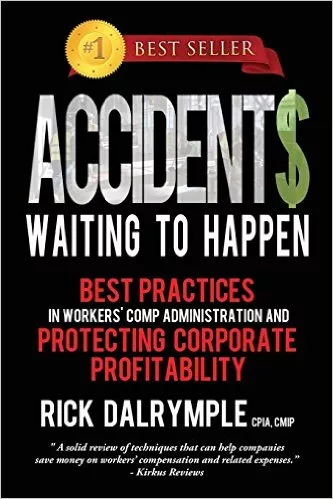Four Myths About Workers' Comp Costs
For most roofing contractors one of their largest and perhaps most frustrating expenses is workers’ compensation insurance. Roofing contractors pay more for workers’ comp than nearly any other contractor and as a result learning how to control that cost is essential to running a successful roofing business. The key to controlling your workers’ comp cost is controlling your experience modification factor.

For most roofing contractors one of their largest and perhaps most frustrating expenses is workers’ compensation insurance. Roofing contractors pay more for workers’ comp than nearly any other contractor and as a result learning how to control that cost is essential to running a successful roofing business. The key to controlling your workers’ comp cost is controlling your experience modification factor.
Your experience modification factor or mod is the single most important controllable factor of your workers’ comp pricing. Depending on your experience mod you could either be paying 50 percent less than your competitors for workers’ comp or as much as 300 percent more. Controlling your experience mod is the best way to lower your workers’ comp premium. Companies that actively work to control their mod can see tremendous savings on workers’ comp. Below are several common myths regarding the experience rating system. By better understanding the system, your company can reduce your workers’ comp premium dramatically.
This couldn’t be further from the truth; in fact your premium has nothing to do with the calculation of your experience mod. Your experience mod is calculated based on a formula established by the National Council of Compensation Insurers (NCCI). NCCI has gathered the payroll and claims information of thousands of businesses over the years and has established the experience rating system as a way of either crediting or debiting an insureds workers’ comp policy based on their loss performance compared to peers in their industry. If a company has fewer losses than their industry peers, they receive a credit mod (or a mod lower than 1.00). If the company has higher than average losses, they receive a debit mod (or a mod above 1.00). The actual calculation of the experience mod is based on the amount of payroll in each workers’ comp class code and the actual losses incurred by the company over a three-year period. Nowhere does premium become involved in the calculation.

The bottom line is that in order to remain competitive your business must control its experience mod. A lower experience mod can reduce workers’ comp insurance costs dramatically, as well as position your business to be a fierce competitor, no matter what industry you are in. Lower operating costs are good for everyone. By working with an agent/broker or consulting company that can assist you in better understanding the system, you will take advantage of the experience rating system and save on your workers’ comp insurance.

For most roofing contractors one of their largest and perhaps most frustrating expenses is workers’ compensation insurance. Roofing contractors pay more for workers’ comp than nearly any other contractor and as a result learning how to control that cost is essential to running a successful roofing business. The key to controlling your workers’ comp cost is controlling your experience modification factor.
Your experience modification factor or mod is the single most important controllable factor of your workers’ comp pricing. Depending on your experience mod you could either be paying 50 percent less than your competitors for workers’ comp or as much as 300 percent more. Controlling your experience mod is the best way to lower your workers’ comp premium. Companies that actively work to control their mod can see tremendous savings on workers’ comp. Below are several common myths regarding the experience rating system. By better understanding the system, your company can reduce your workers’ comp premium dramatically.
Myth No. 1
My Experience Mod is based on my premium paid in and claims paid out. This is perhaps the most common misconception regarding the experience rating system. Many businesses and insurance agents think that your experience mod is a calculation based on the premium the business paid in versus the claims paid in out in a given year.This couldn’t be further from the truth; in fact your premium has nothing to do with the calculation of your experience mod. Your experience mod is calculated based on a formula established by the National Council of Compensation Insurers (NCCI). NCCI has gathered the payroll and claims information of thousands of businesses over the years and has established the experience rating system as a way of either crediting or debiting an insureds workers’ comp policy based on their loss performance compared to peers in their industry. If a company has fewer losses than their industry peers, they receive a credit mod (or a mod lower than 1.00). If the company has higher than average losses, they receive a debit mod (or a mod above 1.00). The actual calculation of the experience mod is based on the amount of payroll in each workers’ comp class code and the actual losses incurred by the company over a three-year period. Nowhere does premium become involved in the calculation.

Myth No. 2
An experience mod of 1.00 is good. WRONG! This is another common myth perpetuated throughout the business community. A mod of 1.00 means simply that you are average. When you sell your goods or services/ do you tell you prospect that you exceptionally average? No - you work hard to be the best in your field. With a mod of 1.00, your claims history is in line with that of your peers in your industry, but it does not mean you are receiving the best workers’ comp pricing possible. For many businesses, their experience mod can go to the mid 0.80’s or lower, saving them thousands on workers’ comp insurance. For a company that spends $50,000 per year on workers’ comp, a 0.87 mod would save them $19,500 over three years. Every business has a different minimum experience mod based on their size and type of business; find out what your minimum experience mod is and aim to lower your mod to get as close to that minimum as possible in order to receive the best workers’ comp pricing.Myth No. 3
Large (severe) claims hurt your experience mod the most. For 99 percent of businesses, this is not true. While the experience rating system does penalize you for large or severe claims, the formula behind the system is actually designed to reduce the impact of large claims on your experience mod. Large claims frequently impact employers much less than they would expect due to the intricacies of the experience rating system. For most employers it is small indemnity claims that drive up their experience mod. In 90 percent of cases, the driving factor behind a higher-than-minimum experience mod is mishandled small indemnity claims. By working with an agent/broker or consulting firm that specializes in managing workers’ comp, insureds can reduce the impact of these small claims on their experience mod and ultimately reduce their experience mod, leading to lower workers’ comp premiums. A total understanding of the experience rating system is a must to receive the best workers’ comp pricing possible.Myth No. 4
There is nothing you can do to control or lower your experience mod. This is the most frustrating myth for employers. Their experience mod goes up year after year, and when they ask their agent/broker what they can do to reduce their premiums the agent simply says, “Have fewer claims,” and “Wait for it to come down.” While there is perhaps some truth to these statements, there are many ways that employers can take control of their experience mod and reduce their workers’ comp cost. By completely understanding the formulas behind the experience rating system, employers can effectively manage claims, reduce the impact of small claims, implement an effective return-to-work program, initiate a “no accident” certification program, and explore the use of deductibles and loss-sensitive program. These and many other small changes can lead to a lower experience mod.The bottom line is that in order to remain competitive your business must control its experience mod. A lower experience mod can reduce workers’ comp insurance costs dramatically, as well as position your business to be a fierce competitor, no matter what industry you are in. Lower operating costs are good for everyone. By working with an agent/broker or consulting company that can assist you in better understanding the system, you will take advantage of the experience rating system and save on your workers’ comp insurance.
Looking for a reprint of this article?
From high-res PDFs to custom plaques, order your copy today!





